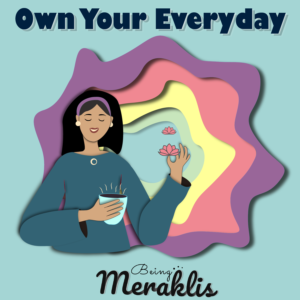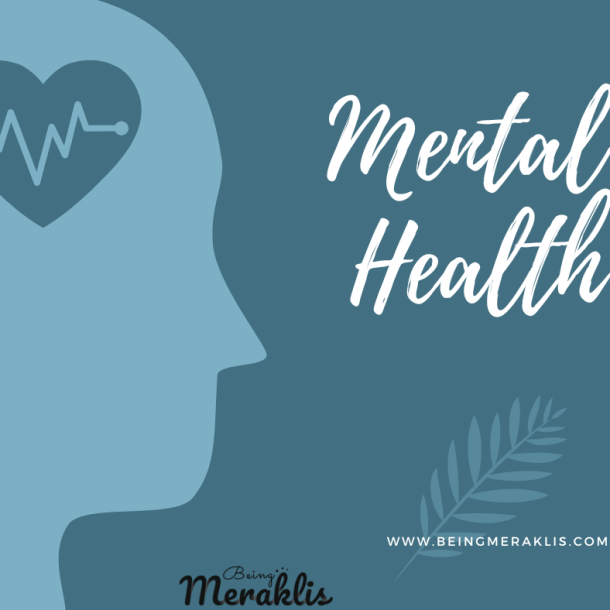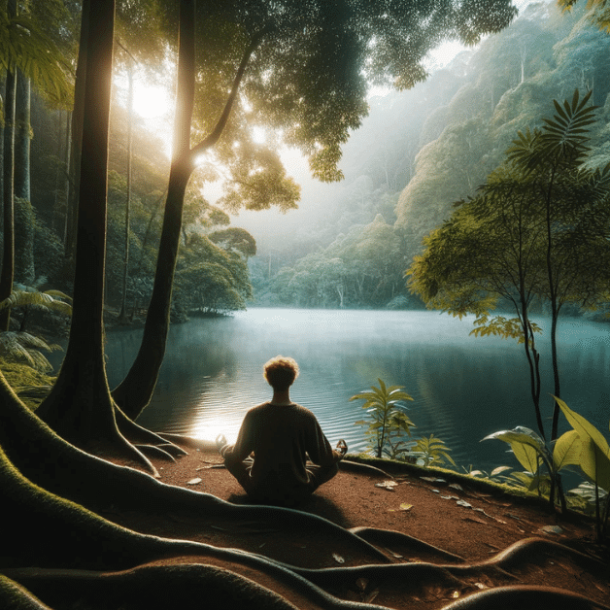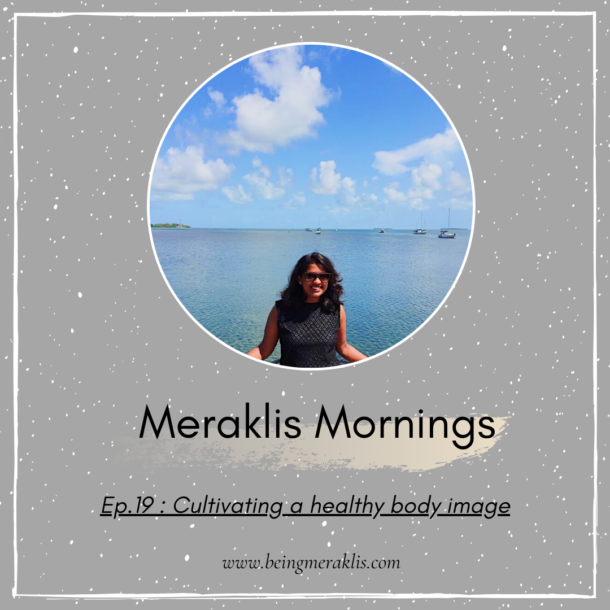Ep 133 -Should you start a meditation practice?
The what, why, and how to get started.

To meditate or not meditate, that is the question isn’t it? With all this talk on mindfulness, meditation is quite the buzzword these days. You’re probably tuning into this episode from a bustling city, with the persistent honking of cars forcing you to increase the volume so you can hear my voice properly. You might even be scrolling on Instagram or the news as you listen, evading the endless stream of notifications from email and e-commerce apps all vying for your attention. The ceaseless demands of modern life have made every day of ours into an endless race with no time to pause and reflect. But now is when that pause becomes all the more crucial. If you’ve been on the fence about whether you should build a meditation practice and if yes how? Then you’re in the right place.
Hello and welcome to another episode of the Own Your Everyday series of the Being Meraklis podcast. I’m your host and self-awareness coach Shwetha Sivaraman back with insights and micro-practices you can use in your busy lives to Own Your Everyday. In today’s episode, we will look at why meditation is all the more significant in today’s fast-paced lives, and how you can get started with building a practice of your own.
Meditation is not some millennial discovery. Its roots trace back thousands of years when ancient sages and spiritual leaders recognized its profound power to harmonize the mind, body, and soul. Many concepts have died a natural death over the centuries but not meditation, because it’s still as relevant if not more in our chaotic and confusing times.
First, let’s clarify, what is meditation?
Often when we hear this term, we picture a monk in saffron robes, sitting still in uncomfortable postures for long periods. It’s misunderstandings like this that make meditation inaccessible in modern times.
I like a simpler definition by Buddhist Monk, Shinzen Young. Any situation wherein you’re consciously cultivating focus is, by definition, a meditation.
That’s it. You can consciously cultivate focus on the Yoga Mat, in a formal meditation practice, or while talking, driving, eating, or even sleeping. That means the act of listening to this podcast can become a meditation if you are consciously cultivating focus and paying complete attention.
Why meditate?
It’s quite common to hear words like meditate to calm the mind and relax completely. So most high achievers and busy professionals have the habit of postponing meditation until retirement or after achieving pinnacles of success because who has time for relaxation before that?
But again, this is a limited understanding of meditation. Meditation helps us calm down and relax, yes, definitely. But it does more than that. It also helps to clarify and gain insight. Many of us today have decision paralysis or analysis paralysis – meditation addresses all of this and more. It helps reduce our suffering when life’s inevitable curveballs hit us. It enables us to be fully present and experience life bigger and better. Meditation helps attain focus and deepen concentration which means we can get more done effortlessly and have more time to experience life fully. It helps us to come to terms with what is regardless of whether the external conditions are favourable to us.
Imagine a woodcutter whose job it is to cut down many trees, year after year, yet who refuses to spend twenty minutes each day sharpening his axe. Then he wonders why he can’t cut as much wood as he needs to, and why it is such hard work. He never realizes that he is using a dull axe, a less-than-optimal tool. The same is the case with us knowledge workers. Our minds are our tools to do creative work and Meditation is the means to sharpen our axe of awareness. Without taking time regularly to sharpen it, we are doing grave injustice to our minds and our lives.
Our minds are constantly overstimulated. We keep feeding it junk constantly and create a system overload. We also eat foods that constantly leave our minds restless and on edge making it weaker to fight the next battle. We remain on 24*7 with our devices and internet connectivity and we compromise on sleep – the one tool the mind has to process and restore without interruption. Meditation can help tackle the downsides of the inevitable information era we live in. This is not simply hearsay, researchers have meticulously studied the effects of meditation on our minds and bodies. They have found that this practice has the remarkable ability to rewire our brains, promoting a deep sense of calm, and improved focus, and memory. Through consistent meditation, grey matter – the precious substance responsible for memory, emotion regulation, and self-control – can increase in volume, enhancing our cognitive abilities and emotional resilience.
In a world where our nervous systems are bombarded with constant stimulation, meditation serves as an oasis of tranquillity and creativity. Just as a skilled painter blends vibrant colours on a canvas, meditation allows us to create a masterpiece within our own lives.
It cultivates a heightened sense of self-awareness, enabling us to witness our thoughts and emotions without judgment. As we detach ourselves from the incessant chatter of our minds, we tap into an inner reservoir of wisdom and clarity, unearthing our true potential.
In a world that often divides, meditation unites us with ourselves and with others. It fosters empathy and compassion, enabling us to feel deeply and understand the human experience with greater clarity. As we cultivate a sense of inner peace, our actions ripple outward, transforming the world around us.
So how can you start and build your own meditation practice?
1. Micro-meditations – If you’re not still convinced of learning a formal meditation practice, begin with micro-meditations – 5 10 minutes of silence and stillness whenever you can carve that into your schedule. Maybe sitting in silence 10 minutes before you start the day or listening to your favourite chant in your commute. Observing your breath or mentally scanning the body. You can use apps like Calm Headspace or videos on YouTube. Whatever makes you feel comfortable. Patanjali says in the Yoga Sutras that to truly get to a state of citta prasadanam or calm quiet mind, we can choose whatever is our object of meditation – according to one’s temperament. **यथाभिमतध्यानाद्व॥३९॥** Of course it is better if the quality of the chosen object is sattvik because it won’t excite you further in rajas or dull your mind further into a state of tamas or inertia.
2. Mindfulness in Action – A lot of times for those who are busy, the first concern is the lack of time. When you already don’t have enough time to fulfil your responsibilities or get work done, where’s the possibility of taking time out for meditation? While I don’t agree with that thought process and know that there’s still that possibility, that’s a discussion for another episode. For now, those of you who feel you don’t have time a good place to begin is to change how you approach your busy day. Can you be more mindful in your conversations, relationships, and at work? This might mean not having another tab open in a Teams meeting or scrolling on the phone during meal times. This way you don’t add to your schedule but simply modify how you approach your schedule
3. Find what fits you – I experimented with many many styles of meditation before finding what resonated with me. So don’t hesitate to experiment and try out various forms of meditation to know what feels right for you. Some of you might prefer guided meditations while others if you’re like me might find another’s voice distracting. You might find it easier to focus on your breath or your body, some of you might like visualizations, and others might like dynamic meditations involving movement or laughter or gibberish. Whatever it is, doesn’t matter – try as many till you find what’s right for you.
4. Once you find one, commit to it – Variety might be the spice of life but in meditations how deep we can traverse will make all the difference. So once you find the right one, commit to it and keep exploring deeper nuances with the same practice. I found my meditation practice in 2018 and have committed to it ever since. I’ve practised it every day, 99% of the times in the last 5 years and I know I’m still skimming the surface with the true power of that meditation.
So there’s your own everyday tip for this week – meditation is not just a luxury; it’s a necessity. By embracing this practice, you can create an inner calm amidst the storm of your ambitions. Meditation can help reduce suffering, elevate fulfilment, create positive behavioural change, deepen understanding of self, and develop compassion and love for everyone around you. Begin today and experience first-hand how meditation can magnify and enhance your experience of life overall. Reach out to me on LinkedIn or Email if you’d like more support in building your personal meditation practice.
Until we meet again, this is Shwetha Sivaraman signing off hoping you have a phenomenal week ahead.



